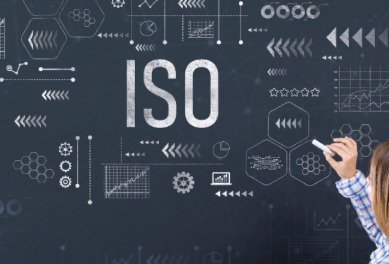In an increasingly globalized world, businesses, governments, and organizations rely on accurate and professional translation services to communicate effectively across languages and cultures. Ensuring translation quality, consistency, and professionalism has become more important than ever. To address this need, the International Organization for Standardization (ISO) developed ISO 17100:2015, the globally recognized standard for Translation Services.
What is ISO 17100:2015?
ISO 17100:2015 is an international standard that establishes the requirements for core translation processes, resources, and other aspects necessary for delivering high-quality translation services. It provides a framework for translation service providers (TSPs) to ensure that their services consistently meet client expectations and industry best practices.
The standard covers all stages of the translation process — from project initiation and management to translation, revision, review, and delivery. ISO 17100 replaces the earlier European Standard EN 15038 and reflects a truly international benchmark for quality and professionalism in translation services.
Purpose and Objectives of ISO 17100
The primary purpose of ISO 17100 is to improve the quality and reliability of translation services. Its objectives include:
-
Establishing clear requirements for the competencies of translators, revisers, and project managers.
-
Ensuring consistency and accuracy in translated content.
-
Defining standardized workflows for project management and client communication.
-
Building trust between clients and translation service providers.
-
Enhancing efficiency through well-defined processes and quality assurance checks.
Key Requirements of ISO 17100
ISO 17100 outlines several essential requirements that a Translation Service Provider must meet to achieve certification:
-
Qualified Personnel:
Translators must possess appropriate qualifications, such as a recognized translation degree or equivalent professional experience. Revisers and reviewers must also have proven linguistic and subject-matter expertise.
-
Project Management:
The standard emphasizes effective project planning, assigning qualified resources, managing timelines, and maintaining client communication throughout the project lifecycle.
-
Translation and Revision Process:
Every translation must undergo a revision by a second linguist to ensure accuracy, consistency, and completeness. This double-check system enhances quality assurance.
-
Quality and Confidentiality:
ISO 17100 requires robust quality management and data protection measures to safeguard client information and maintain confidentiality.
-
Client Communication and Feedback:
The standard promotes transparent communication with clients — from project scope definition to feedback handling — ensuring mutual understanding and satisfaction.
Benefits of ISO 17100 Certification
For translation companies and clients alike, ISO 17100 offers significant advantages:
-
Improved Translation Quality: Ensures consistency, accuracy, and professionalism across all projects.
-
Client Confidence: Demonstrates a provider’s commitment to international quality standards and reliable service.
-
Operational Efficiency: Standardized workflows lead to fewer errors and smoother project execution.
-
Competitive Advantage: ISO 17100 certification enhances credibility in a highly competitive global market.
-
Legal and Confidentiality Assurance: Builds trust by ensuring compliance with confidentiality and data protection requirements.
Conclusion
In the modern global marketplace, effective communication is essential — and high-quality translation plays a vital role in achieving it. ISO 17100:2015 ensures that translation services are delivered with professionalism, consistency, and transparency.
By adopting ISO 17100, translation service providers not only strengthen their internal processes but also demonstrate a strong commitment to client satisfaction and continuous improvement. Ultimately, this standard helps bridge language barriers while upholding the integrity and clarity of communication worldwide.






